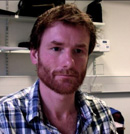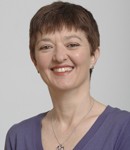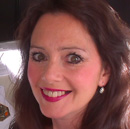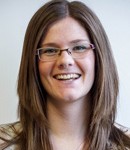 Dr Damian Parry and I recently attended the OUP (Oxford University Press) Bioscience Education Summit which this year took place in Ulster University, Belfast. After an entertaining “bucket list” icebreaker session ran by Dr Parry himself the conference broke out into the first of two key discussion forums. Jonathan Crowe from OUP led an interesting session on the role of publishers in higher education and what, if any, additional support they could be offering to enhance student learning. Most attendees suggested that if publishers could increase the number and breadth of case study style questions then this would be a benefit. However the more thought provoking conversations in this session focused on the responsibility of publishers to support students developing critical thinking skills by placing greater emphasis on the range of research evidence used to establish a scientific theory. One compelling comment from a delegate has lingered in my mind “it is too hard for a student to even comprehend that one bullet point in your lecture slides might be the result of 5-10 years of research”. I thought this was a very interesting point and wondered how much of this is truly covered in our research-led and research-informed teaching?
Dr Damian Parry and I recently attended the OUP (Oxford University Press) Bioscience Education Summit which this year took place in Ulster University, Belfast. After an entertaining “bucket list” icebreaker session ran by Dr Parry himself the conference broke out into the first of two key discussion forums. Jonathan Crowe from OUP led an interesting session on the role of publishers in higher education and what, if any, additional support they could be offering to enhance student learning. Most attendees suggested that if publishers could increase the number and breadth of case study style questions then this would be a benefit. However the more thought provoking conversations in this session focused on the responsibility of publishers to support students developing critical thinking skills by placing greater emphasis on the range of research evidence used to establish a scientific theory. One compelling comment from a delegate has lingered in my mind “it is too hard for a student to even comprehend that one bullet point in your lecture slides might be the result of 5-10 years of research”. I thought this was a very interesting point and wondered how much of this is truly covered in our research-led and research-informed teaching?
The final discussion forum of the summit explored the different forms of teaching observations being performed within Higher Education Institutions. The session posed the pertinent question “why and who for”? This led to an interesting debate on whether such observations should be purely for sharing best teaching practice or as a quality control measure or in fact if both could, and should, be examined in just one observation. This raised further questions on how and if dissemination of such observations occurs, the balance between senior and junior staff and their roles within the observation as well as the frequency of the schemes. As you would expect the potential use of teaching observations in the reported Teaching Excellence Framework (TEF) was also the subject of many conversations. But what this session really highlighted was the vast differences in schemes across the sector and again to provoke thought and further discussion ended by asking delegates to design their ideal, TEF usable observation scheme.
The conference had 10 short swap shop sessions for attendees to share their teaching practices and current pedagogic research projects. Dr Parry presented his collaborative project with Northumbria and Teesside University on undergraduate’s perceptions of scientists and I presented my work on the Feedback Foghorn (funded by the UTLSEC Innovation fund) which is being piloted with SBMS students this academic year. As the Higher Education Academy has disbanded its subject centres, this summit was an excellent opportunity to network with Bioscience colleagues from across the UK and Ireland and I would encourage anyone to consider presenting work at such a friendly and informative event in the future.
On a final note I would like to pose the same key questions to the ERDP newsletter readers:
- Should publishers take greater responsibility for supporting critical thinking skills?
- Do students understand the timeline and range of research required to establish a scientific theory?
- What would be your ideal version of a teaching observation for the TEF?
Dr Lindsey Ferrie, School of Biomedical Sciences

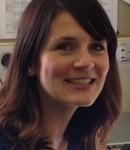
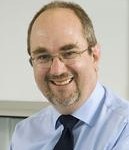 Welcome to our first newsletter of the new academic year. I hope that you have all had a summer both productive and restful in equal measure in preparation for the new academic year.
Welcome to our first newsletter of the new academic year. I hope that you have all had a summer both productive and restful in equal measure in preparation for the new academic year.